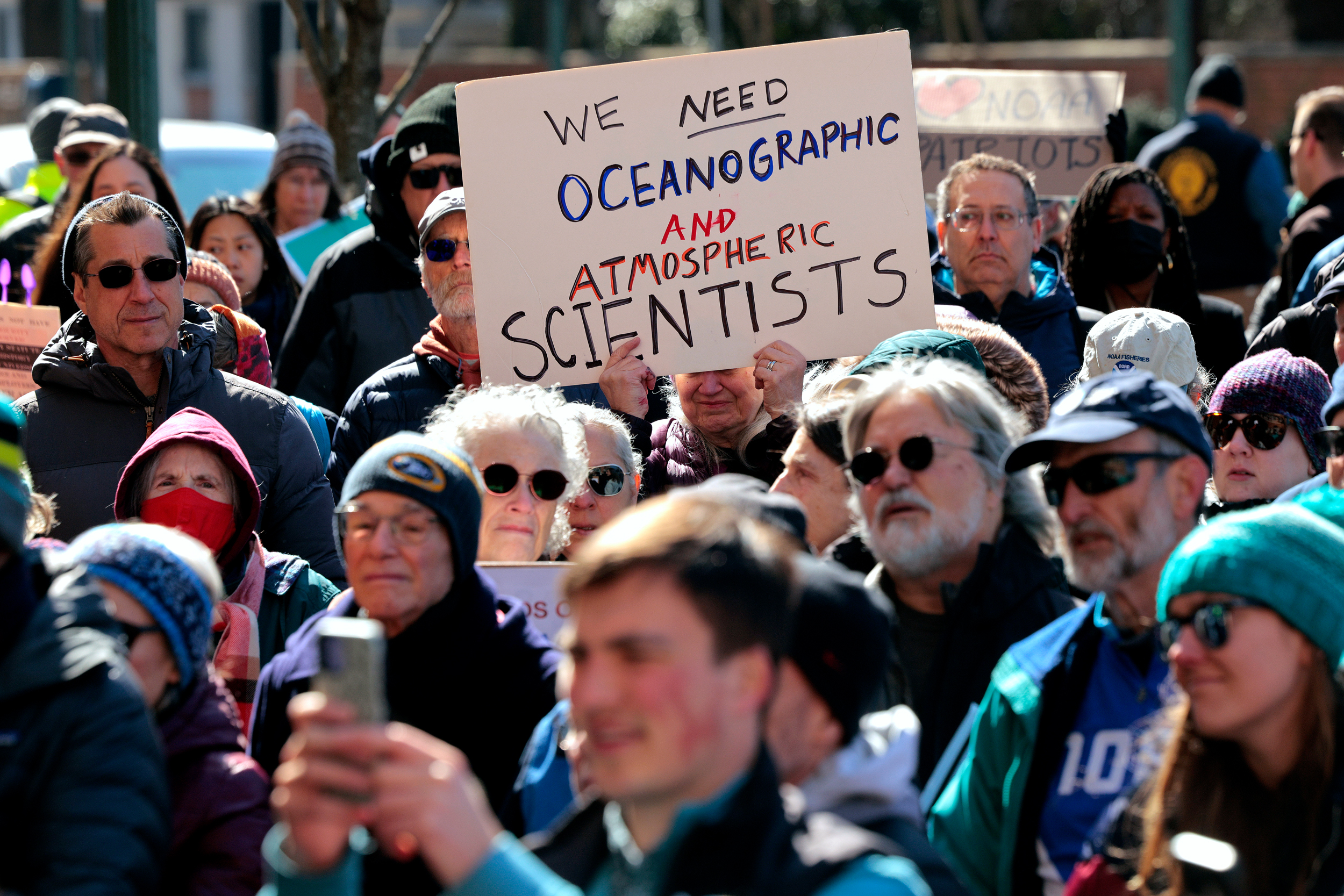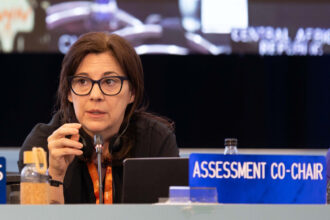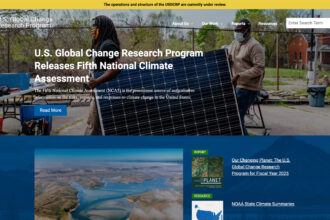Researchers across the United States and the world who raced to protect climate data, public reports and other information from the Trump administration’s budget cuts, firings and scrubbing of federal websites are launching their own climate information portals.
A group of scientists and other experts who formerly worked for the National Oceanic and Atmospheric Administration recently launched climate.us, where they eventually hope to replicate much of the public-oriented climate content from climate.gov.
In a parallel effort, two major scientific institutions, the American Geophysical Union and the American Meteorological Society, have started soliciting studies for a special “Climate Collection” to maintain momentum on the work that was already under way on a Congressionally mandated 6th National Climate Assessment, due in 2028, before all the scientists working on the report were fired and cabinet-level team that led the effort disbanded.
The new efforts demonstrate how difficult it is to erase or obscure climate science from the public in an era when thousands of scientists and computers around the world are continuously calculating and measuring climate and greenhouse gas emissions. Other science rescue efforts have focused on preserving those data sets, but the public-facing portals are also important, experts said.
Current efforts by the U.S. government to make it harder for people to get scientific information are a clear-cut case of censorship, said Haley Crim, currently a climate solutions researcher at MIT and one of the leaders of an effort to restore important climate information that officials in the Trump administration purged from federal websites.
Along with significant funding and personnel cuts to various federal climate programs and other scientific efforts, some scientists report facing increased harassment and threats online. Others worry that misleading, inaccurate and potentially dangerous misinformation is being posted on official government websites.
Gaining traction for new climate websites can be a challenge in a world filled with misleading and false scientific information, but the latest efforts have endorsements from leading scientists and scientific institutions. And the researchers working on the science preservation and restoration efforts say that, in the long run, the projects may result in new ways to store and share scientific information, and perhaps even better ways to make that information more relevant to the growing number of people experiencing deadly and disruptive climate impacts in the U.S. and around the world.
During her last few months working on the climate.gov website, Crim said she was ordered to remove articles mentioning diversity and other terms identified by political appointees. The altered version of the website remains online, but its future beyond the end of this year is uncertain.
A NOAA spokesperson said that changes to climate.gov were made in compliance with an executive order, and that all research products from climate.gov will be relocated to noaa.gov to “centralize and consolidate resources.”
“It’s unbelievable, and it is censorship, and I think people were afraid to say that for a long time,” Crim said. “We were literally forced to word search our own website and take down articles because they didn’t want to read the word ‘equity’, or other related terms.”
On top of the censorship, Crim said she and others working on the new website fear that the Trump administration could lash out at them or their institutions, but she said she won’t be intimidated.
“There’s no other option for me,” she said. “I can’t sit back and watch this stuff be taken down because someone didn’t like it. It is state-of-the-art climate information and I’m not just going to let that go away.”
Any mentions of climate justice were also purged, said former climate.gov editor Rebecca Lindsey, who is now working on the effort to restore the deleted information on the new website, climate.us.
So far, a handful of people are coordinating the effort publicly, with dozens of others volunteering behind the scenes. The long-term goal is to ensure there is as complete a backup as possible, including censored material, if climate.gov goes offline.
“They removed anything about trying to increase diversity in the sciences, and the fact that the impacts of human-caused climate change are going to be disproportionately felt by people who are already marginalized,” Lindsey said, adding that the team wants to revive that potentially life-saving information.
Through mid-September, crowdfunding efforts have enabled the volunteers to launch their new website and, in a big step, to post the Fifth National Climate Assessment.
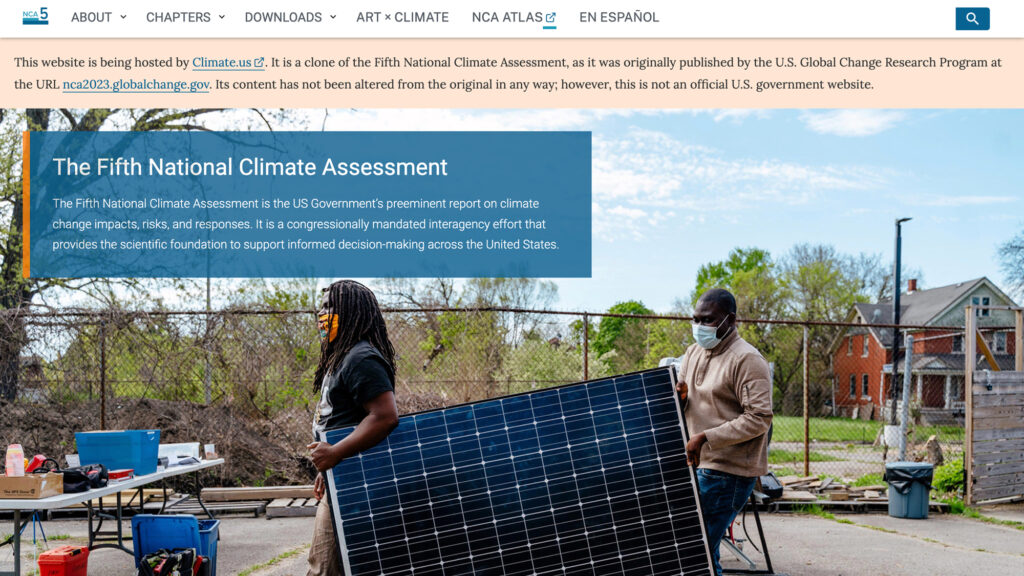
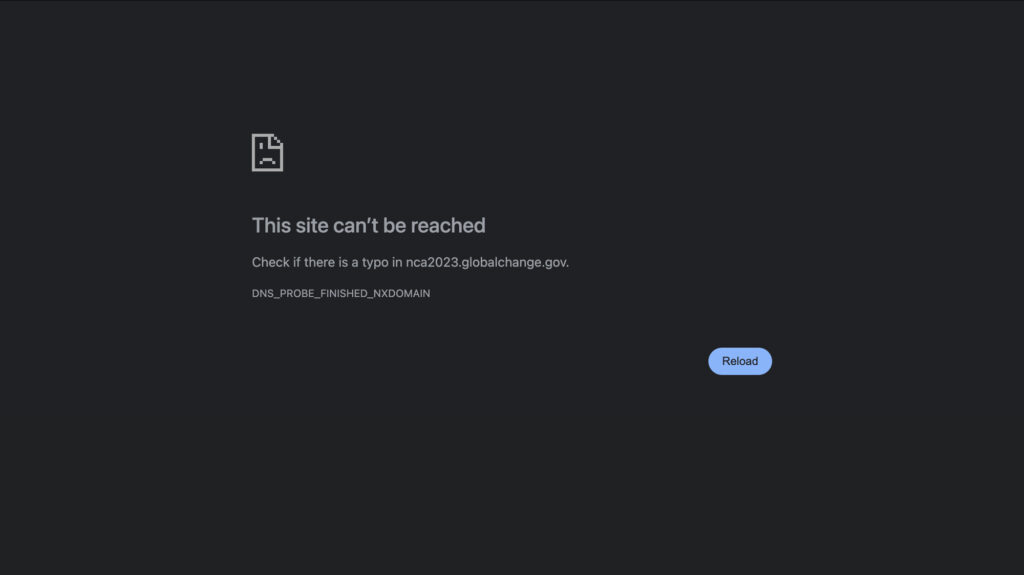
Screenshots of the landing page for the Fifth National Climate Assessment on climate.us, and where it used to be hosted on the government-run nca2023.globalchange.gov.
The NCA5, published in 2023, is the most comprehensive federal report on human-caused warming and its impacts and serves as a critical resource for communities facing wildfires, rising sea levels and other climate-related challenges. It was relegated to an archival website in June when the administration shut down the interagency U.S. Global Change Research Program, which had a congressional mandate to produce the report.
In a worst-case scenario, Lindsey added, the administration could use the popular climate.gov portal to publish deliberately misleading information, like a recent debunked climate report from the U.S. Department of Energy.
To establish the new website’s credibility, the team plans to partner with authoritative institutions, such as the World Meteorological Organization and the American Meteorological Society, and recruit an independent science advisory panel for expert review and oversight, she said.
National Climate Assessment Continues
Parallel to the efforts to recreate the climate.gov information portal, the AGU and the AMS are working to ensure that climate information relevant to the United States’ interests is being properly cataloged in a format that could be used in a future national climate assessment.
Their project compensates for the potential discontinuation of work on a new congressionally mandated National Climate Assessment scheduled for 2028. The Trump administration defunded the interagency team and dismissed the scientists working on the assessment in April.
A federal task force coordinated the National Climate Assessment, but the new U.S. climate collection will be more of a grassroots project, as the peer-reviewed contributions help define its shape.
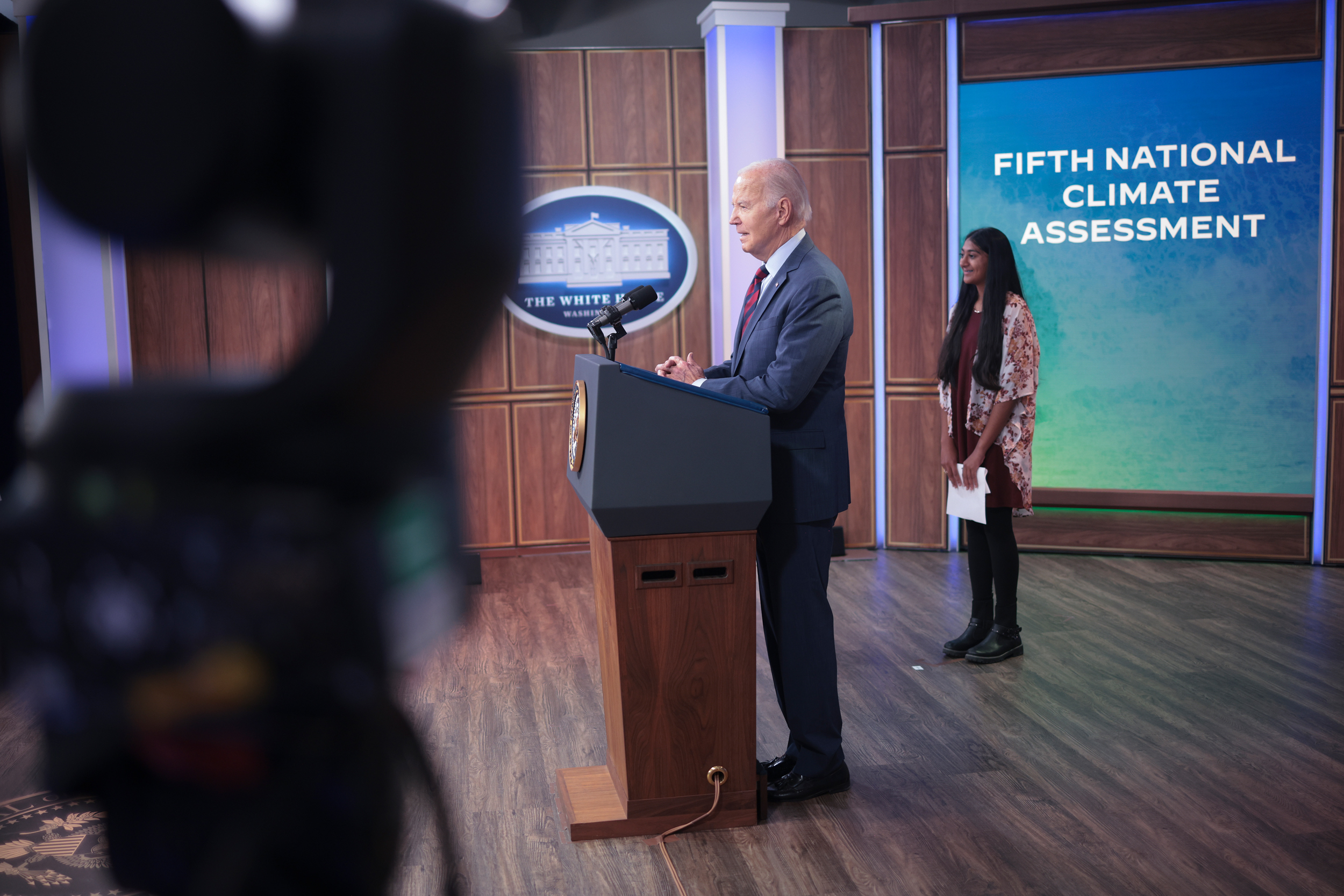
“One of the things that we in the broader science community can do in this moment is do what we do best, and that’s peer-reviewed, rigorous science,” said Costa Samaras, director of the Scott Institute for Energy Innovation and trustee professor of civil and environmental engineering at Carnegie Mellon University, who is helping to coordinate the collection.
“Information about how climate affects communities and resources is essential for both public understanding and for public and private decision making,” he said.
The collection can be a beacon for the scientific community to submit “high-quality, rigorous scientific research around climate that can be peer-reviewed and widely shared for free,” he said, “in a way that helps, our broader understanding of these issues, especially as climate impacts accelerate.”
This story is funded by readers like you.
Our nonprofit newsroom provides award-winning climate coverage free of charge and advertising. We rely on donations from readers like you to keep going. Please donate now to support our work.
Donate NowHe said some of the research likely will focus on questions like where extreme rains will lead to flooding in coming decades, and where sea level rise may take unexpectedly big bites out of coastal communities, as well as studies looking at overall ecosystem impacts and community impacts, with an eye toward how climate impacts “disproportionately affects marginalized communities, both here and around the world,” he said.
New Opportunities
Co-organizer Bob Kopp, a climate researcher at Rutgers University who has also participated in several other major national and international climate assessments, said there has been significant research on systemic climate impacts that could be part of the collection, including effects on insurance and real estate markets, and how climate impacts strain municipal health infrastructure. Additionally, he said assessments of carbon dioxide removal and other negative-emissions technologies would be useful.
There are, for example, a lot of ways to think about climate impacts and climate solutions that “relate to the education sector, the IT sector, or the legal system. I personally would love to see things that haven’t been assessed as much,” he said. “New synthesis papers could really lay the groundwork for future assessments.”
Lindsey, the former NOAA contractor now working on the new public climate information portal, climate.us, said that working “outside the federal fence” could open avenues for climate communications that weren’t previously an option for the federal agency, including posting information about global warming and carbon dioxide mitigation, which was not part of the mission of the climate.gov website, she said.
“We see this as an opportunity to diversify our support, to get out from under potential political interference,” she said.
About This Story
Perhaps you noticed: This story, like all the news we publish, is free to read. That’s because Inside Climate News is a 501c3 nonprofit organization. We do not charge a subscription fee, lock our news behind a paywall, or clutter our website with ads. We make our news on climate and the environment freely available to you and anyone who wants it.
That’s not all. We also share our news for free with scores of other media organizations around the country. Many of them can’t afford to do environmental journalism of their own. We’ve built bureaus from coast to coast to report local stories, collaborate with local newsrooms and co-publish articles so that this vital work is shared as widely as possible.
Two of us launched ICN in 2007. Six years later we earned a Pulitzer Prize for National Reporting, and now we run the oldest and largest dedicated climate newsroom in the nation. We tell the story in all its complexity. We hold polluters accountable. We expose environmental injustice. We debunk misinformation. We scrutinize solutions and inspire action.
Donations from readers like you fund every aspect of what we do. If you don’t already, will you support our ongoing work, our reporting on the biggest crisis facing our planet, and help us reach even more readers in more places?
Please take a moment to make a tax-deductible donation. Every one of them makes a difference.
Thank you,


